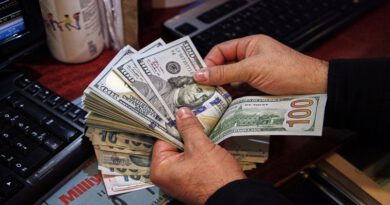Central banks shouldn’t aid state firms, governor says
Government companies in South Africa that have had billions of rand looted through a process known as state capture shouldn’t be bailed out by the central bank even as they pose a significant fiscal risk, Governor Lesetja Kganyago said.
“The challenge of dealing with too-big-to-fail SOEs, of combining cash injections with conditionality measures, needs to be dealt with by the elected authorities – as it has been in the latest budget from National Treasury,” Kganyago said in an emailed copy of a speech Tuesday, referring to state-owned enterprises. The South African Reserve Bank’s “power to say no was greatly enhanced by its independence,” he said.
At least seven state companies are “either on their knees or touching carpet” as institutions were damaged due to state capture, public enterprises minister Pravin Gordhan said in February. As much as R500 billion ($36 billion) probably left South Africa due to state capture, he said, using a local term for the use of political connections to secure appointments of allies to key state posts and win contracts. In the same month, the nation announced a record R69 billion bailout for power utility Eskom to help it service its obligations.
Credit-ratings companies have singled out the central bank’s independence as a sign of institutional strength in the country. The ruling African National Congress wants to nationalise the bank, one of the few worldwide that’s owned by private investors. President Cyril Ramaphosa says the move to bring it under the control of its citizens will affirm the nation’s sovereignty.
“A small portion of leaders are bad, and if you understand probability, then you know sooner or later most countries will get a bad leader,” Kganyago said. “There is nothing undemocratic about buying some insurance against this eventuality, and independent central banks, like judiciaries, are useful parts of those insurance policies.”
Source: moneyweb.co.za



